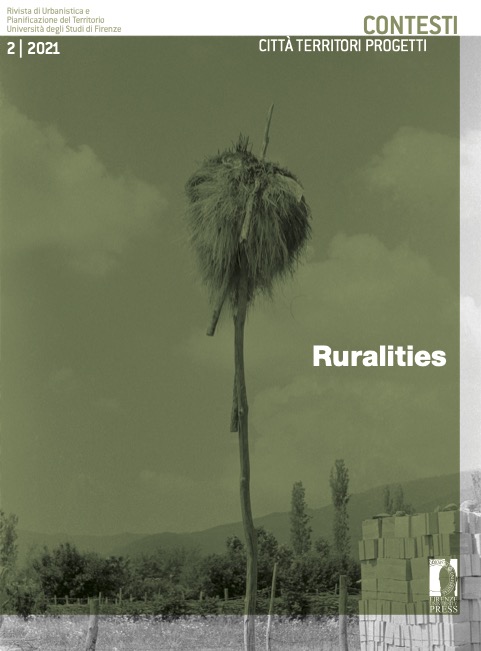Rural areas as actors in the project of regional systems: A comparison between Sardinia and the North-West Development Region of Romania
Published 2021-12-23
Keywords
- rural areas,
- bioregionalist model,
- territorial planning,
- economic and productive system
How to Cite
Abstract
The paper deals with the topic of rural areas sustainable transformation and development comparing two different contexts, Sardinia inland (Italy) and the North-West Development Region of Romania. First, it focuses on the general knowledge for the recognition of rural areas, highlighting the main features that define the territorial identity, the environmental and historical structure. The conditions of economic disadvantage and depopulation of inner areas affect the territorial structures and relationships between urban and rural spaces, unbalancing the historical equilibrium through new dynamics of settlement related to processes of redefining the economic and productive system. The case study analysis provides the opportunity to reflect on possible solutions and perspectives to create new sustainable and lost-lasting development for rural areas, enhancing the polycentric character of settlements and redefining the relationships between urban and rural production and consumption. In particular, the bioregionalist model is used as a reference for the design of new alliance pacts between city and countryside, focusing on the role of the agricultural sector in the definition of new positive connections between urban and rural areas.


